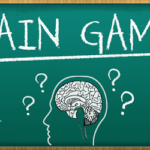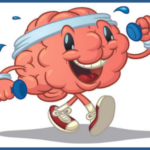Do Brain Games Really Work?
Do brain games really work? That is what we will find out in this article today. There has been a big surge in brain training apps as of late. Are they even worth the time? Let’s find out more.
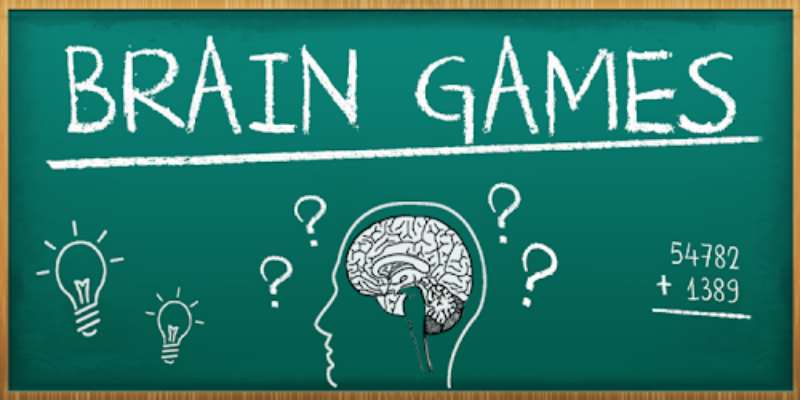
Do Brain Games Really Work Introduction
Over the past few years, the idea of brain games has become popular among people looking to boost their memory and brain health through simple exercises that take just a few minutes each day.
But do these games really work? In this article, we’ll look at some of the most popular brain games out there and evaluate whether they’re worth your time or not.
A lot of people play brain games to boost their memory, focus, and problem-solving skills. But do they really work? Brain games are fun, so they’re easy to get hooked on – but they can be expensive and time consuming to play all the time.
Before you spend any more time or money on brain games, think about these pros and cons to determine if playing them will really make a difference in your life!
Brain Training Games
Training your brain with brain games isn’t a new concept. People have been doing it for years and there is an assumption that performing well in these games can give you sharper mental reflexes.
While you may feel like you’re exercising your brain, does it really work? The answer: Yes — sort of. Just like any other muscle, your mind needs to be worked out and some of these games can help do just that. But keep in mind that playing these types of games won’t magically turn you into Albert Einstein, no matter how much fun they are to play!
Brain Fitness
So do brain games work to keep your mind sharp, or are they another fad that offers only short-term benefits at best? The findings from some recent studies suggest that there may be truth behind many of these claims.
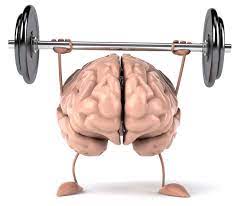
One study, published in Neuropsychology Review, followed 20 healthy elderly participants (age range 60–80) over eight weeks. Two groups were separated into 2 different groups: one group played 10 brain games designed to improve cognitive function while the other group did not.
By week’s end, researchers found that participants who played brain games experienced significant improvements in their memory and attention span as well as improvements in their reasoning skills.
Which Brain Games Should You Play?
Several companies have made a name for themselves by selling brain games, but which ones are actually worth your time and money? The answer depends on what you’re looking to get out of them.
On one end of the spectrum are games that sharpen cognitive skills like memory, attention, and processing speed—in other words, brain training. When it comes to these types of games, researchers haven’t seen much in terms of improvement.
But other games, think word search puzzles or trivia based titles may improve problem solving skills or your ability to think on your feet; they just don’t tend to make you smarter overall.
If you’ve never played a brain game before, research shows that playing just one can do some good.
How Do Brain Games Work?
Well, it’s a bit complicated. Many of these games are designed to help people improve specific aspects of their brain function, but that doesn’t necessarily mean they’ll actually work.
It might surprise you to learn that while mental exercises can improve your brain function over time, there isn’t any evidence that practicing one specific game improves overall brain health, not in any permanent way anyway. For example, imagine going for a run today and you notice yourself running faster than usual.
Does that mean you have an extra high ceiling for speed? That depends on whether or not you continue training for speed.
Does It Really Make a Difference?
A study published in The Journal of Gerontology looked at whether training for only one hour a day, three days a week for six weeks could really improve memory. It did. The participants had increased their performance on various tests of memory and everyday problem solving by an average of 30% when they were retested after training was over.
But while that sounds great, studies don’t tell us everything we need to know about brain games. There is no shortage of claims that they make you smarter, sharper, more focused, or better able to remember things (they even claim improvements in motor skills). But do they really work?
And if so, how much do you have to play before you see any kind of memory improvement, and is it worth your time and effort?
Two Ways Brain Games Improve Your Memory
Researchers at MIT and Harvard found that people who play these games regularly see improvements in two main areas of memory: working memory (the ability to remember something temporarily) and perceptual skill learning (the ability to learn how to identify an object based on its shape).
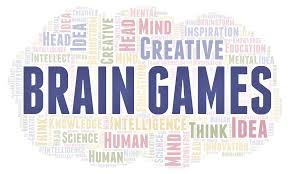
It’s because these games rely on your perceptual skills that they’re so effective at improving working memory. For example, in a puzzle game like Tetris, you have to quickly identify which blocks will fit into a particular space.
The more time you take making decisions, then, the less time you have left for planning your next move and consequently, it takes longer for you to finish playing. Through repetition, though, Tetris players can improve their speed and accuracy with each passing game.
Are Brain Games a Waste of Time?
There are plenty of products and programs out there that claim to improve your memory, focus, learning ability, and more often in just 10 minutes a day. While they sound enticing, many experts say that brain games are little more than a waste of time.
If you’re looking for a way to challenge your mind or keep sharp as you age, these options may not be worth your time. Instead, it might be better to take care of your overall health with regular exercise, healthy eating habits, and stress management techniques. With those in place, mental fitness can follow naturally.
Benefits of Brain Training Games
While it’s clear that engaging in physical activity is good for your body, recent studies have shown that exercise also makes a huge difference to our mental health. Among other benefits, regular exercise can reduce symptoms of depression and anxiety.
One study found that people who played video games regularly were happier than those who didn’t and when they exercised, they were even happier still.
Exercise also improves cognitive function, with one study showing that walking three times a week could help slow down age related cognitive decline by as much as 2 years.
Reality tells us that all games are not created equal: some researchers believe puzzle games like Sudoku or crosswords offer similar benefits to brain training games because both stimulate parts of your brain and require you to think hard to get them right.
Do Brain Games Really Work Conclusion
What Kind of Games Will Help Improve Your Brain Function? Though it’s a safe bet that brain games will not miraculously cure Alzheimer’s or dementia, they can help you sharpen your cognitive skills and keep your mind in good shape.
If you are starting to feel as if your brain isn’t as sharp as it used to be, there is no time like now to do something about it. The sooner you start thinking about ways to exercise your mental muscles, the better off you will be in old age.
It might seem impossible to regain lost intellectual abilities, especially because once some neurological connections are gone, they’re truly gone, but there are still things you can do to help slow down cognitive decline and protect yourself from future problems.

